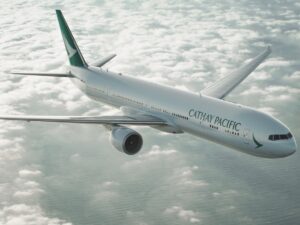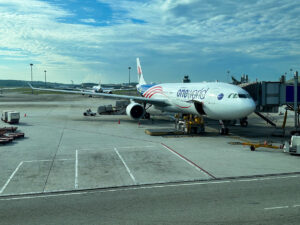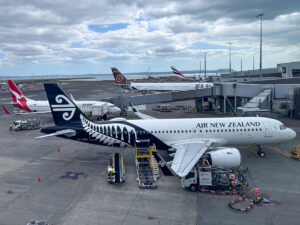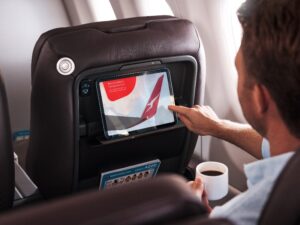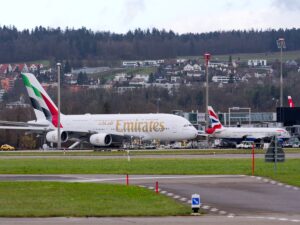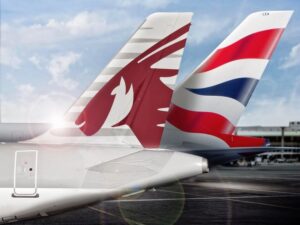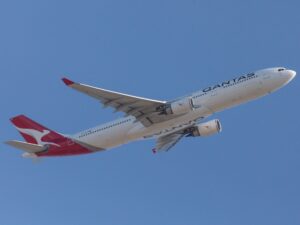
Last week, consumer advocacy group Choice awarded Qantas its annual Shonky Award for “unusable flight credits, delayed flights, disappearing baggage, and endless call wait times”. It described the flying kangaroo as “The Spirit of Disappointment” for letting down many of its customers.
“People are still paying premium prices to fly Qantas, but it’s clear from the complaints we’ve heard, they’re not getting a premium service,” Choice travel expert Jodi Bird said.
Naturally, Qantas disagrees with Choice’s assessment. It claims that the data Choice is using is out of date, that call centre wait times have dropped, and that flight credits are easy to use.
“Our customers have redeemed more than $1 billion in COVID-related flight credits. The conditions for these are the same or better than they were pre-COVID and we’re actively encouraging our customers to use them,” Qantas said in response to the Shonky Award.
Fortunately, Qantas’ on-time performance and lost baggage rates have improved over the course of this year. It is also true that calls are now being answered much faster by Qantas than they were in March 2022, when the average wait time was over two hours.
But many of those calls are now being answered by inexperienced staff in offshore call centres who are not sufficiently trained or empowered to help with more complex issues. That is, if the call doesn’t drop out entirely (something that remains a regular frustration for Qantas customers today).
Perhaps the “wait times” metric Qantas has been using in recent months to score its own call centre performance needs a rethink, because there’s still a customer service problem even with the shorter wait times.
It is also true that many Qantas customers have been able to redeem flight credits online, and that more than $1 billion worth of COVID-related credits have been used by Qantas customers in recent years.
But many other customers have not been able to book online due to problems with the Qantas website, and Qantas quietly changed the rules last year so that credits could only be used for a new booking of equal or greater value. Qantas also could have done a better job of informing customers who were automatically issued with a flight credit due to a cancellation that they were entitled to request a refund.
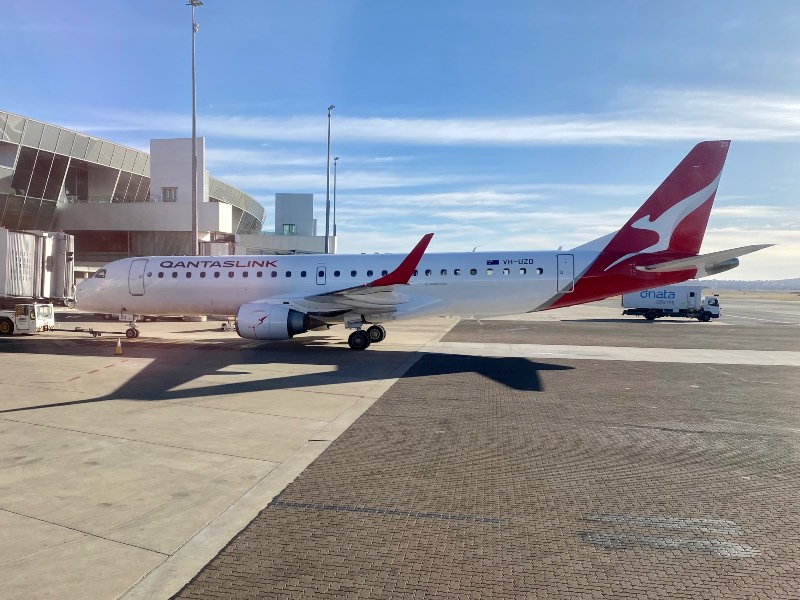
Calls for stronger laws to protect Australian travellers
According to Choice CEO Alan Kirkland, Australia’s existing laws do not do enough to protect the flying public.
“The laws that left travellers in cancellation chaos throughout 2020 remain the same today. Businesses are allowed to write the rules, so anyone who has paid for travel that is then cancelled needs to wade through unclear terms and conditions, as thousands of Qantas customers have been left to do,” Kirkland said.
“CHOICE has put forward a clear plan to governments about how to ensure that people are treated fairly in the travel market. We now need federal, state and territory governments and industry to work together to make travel easier and fairer.”
In order to strengthen its case, Choice has started a poll on its website where members of the public can share their airline experiences and thoughts on whether Australia needs stronger laws. The organisation plans to share its findings with all relevant Australian governments.
Does Australia need stronger air passenger protections?
Compared to similar jurisdictions such as the European Union, United States and Canada, Australia has very weak laws to protect air passengers.
Australian Consumer Law guarantees that customers can get a refund if a service is not provided as advertised (such as a flight being cancelled). However, there is an exception if the cancellation is caused by an event outside the airline’s control such as border closures or weather. This creates a situation were airlines operating in Australia, such as Air New Zealand, can legally get away with not refunding cancelled flights and instead forcing customers to accept a credit.
Thankfully for consumers, the policies of Qantas and most other Australian airlines do state that customers are entitled to a refund if the airline cancels their flight. (The ACCC pinged Qantas for this back in June 2020.)
However, unlike in the United States for example, there is no requirement in Australia to provide legally entitled refunds within a reasonable time frame. This led to many Qantas customers waiting months to get their money back during the pandemic, although the wait times for a refund have now shortened.
European, Canadian and US protections for travellers
The issue of refunds is just the tip of the iceberg.
In the European Union, airlines are legally required not just to offer a refund, but also to compensate passengers if they cancel or significantly delay a flight at short notice for reasons within the airline’s control. There are mandated compensation amounts which are designed not only to act as an incentive to airlines to ensure flights run on time, but also to cover additional expenses incurred by passengers as a result of the delay.
The EU261 laws set out minimum compensation amounts if a passenger is denied boarding due to overbooking, downgraded to a lower cabin class, or their baggage is lost or delayed.

EU261 regulations also set out minimum standards of treatment in the case of delays or cancellations. These include clear communication with passengers and options to get rebooked onto alternative flights.
This would have been very handy for the Qantas passengers who were abandoned at Brisbane Airport earlier this year after missing their connecting Qatar Airways flight on the same ticket. Or, the Jetstar passengers who were recently stranded in Indonesia for 18 days.
The US and Canadian laws are similar to Europe. In the United States, there have even been recent discussions about mandating compensation for aircraft type changes resulting in a “significant downgrade in the air travel experience or amenities available onboard the flight”. This could mean Business passengers who booked a lie-flat seat could be compensated if there is an aircraft change to a plane without flat beds.
Australia has no such passenger protections. Airlines are pretty much free to do what they like, within the limited existing confines of the law, and all passengers can really do is vote with their feet and wallets.
In fact, if Qantas downgrades you from Business to Economy on a domestic flight, there is currently no compensation payable. Instead, you’ll be entitled to a fare refund which is calculated as the difference between the Business fare you paid and the most expensive flexible Economy ticket. That could be a very small amount and is completely unfair if you would not have bought that full-priced Economy ticket.
Isn’t there an airline ombudsman to keep the industry in check?
The Airline Customer Advocate (ACA) is supposed to help travellers to resolve their disputes with airlines. But the de-facto airline ombudsman (in the absence of a real one) itself won a Choice Shonky Award last year for being “ineffective”.
According to the Airline Customer Advocate’s own website, it “does not have independent power to make decisions that affect the participating airline’s response to your complaint”.
In addition, the vast majority of airline complaints received by the ACA in recent years were not even eligible for them to look at and were not resolved.
The ACA publishes data about the number of complaints it receives, finalises and resolves, as well as the types of complaints and customer satisfaction data, in its annual reports which can be found on its website.
Unfortunately, these annual reports do not fill us with confidence that the ACA is an effective alternative to government regulation. For starters, some of the charts don’t even make sense…
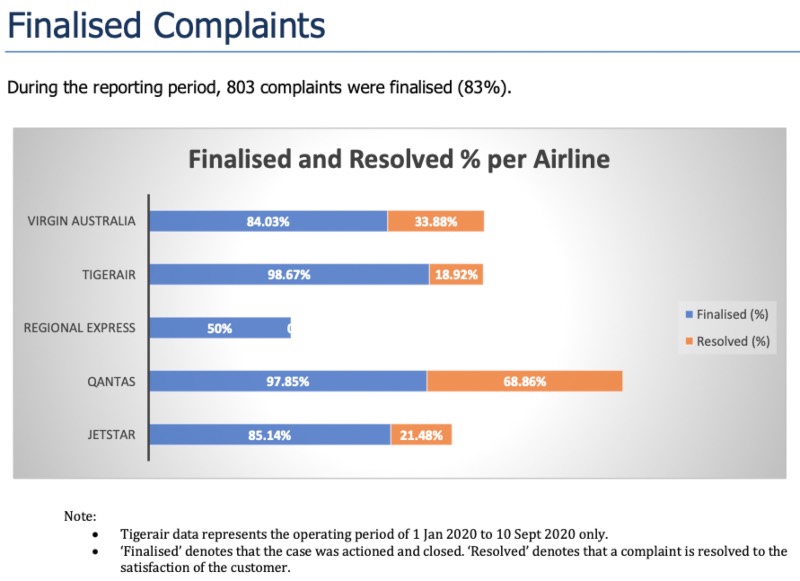
The thing is, the Airline Customer Advocate is not a real government body. It is funded by the airlines, and was set up in 2012 after a government white paper found that airlines did not have effective complaint resolution processes.
The airline industry only started the Airline Customer Advocate because they were faced with the threat of compulsory regulations if they didn’t improve within a year.
This was enough to stop further government intervention at the time. But the last decade has shown that self-regulation hasn’t really worked. With so many nightmare travel stories emerging in recent years, it is probably now time for the government to do more.
Join the discussion on the Australian Frequent Flyer forum: Qantas wins Shonky Award … again
